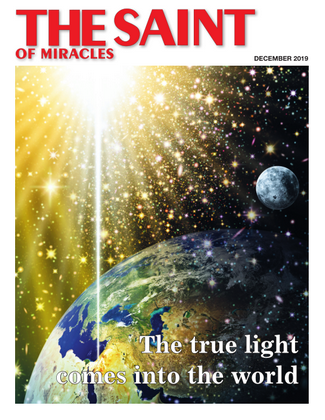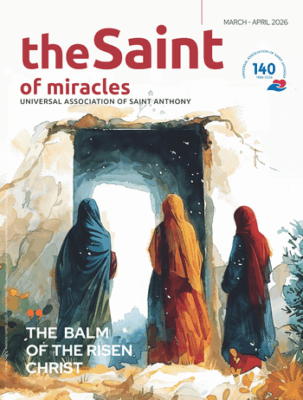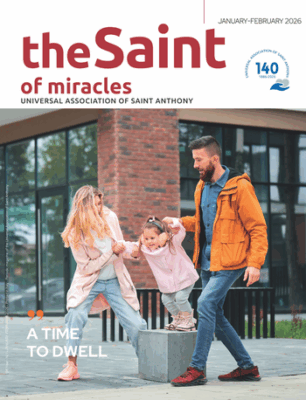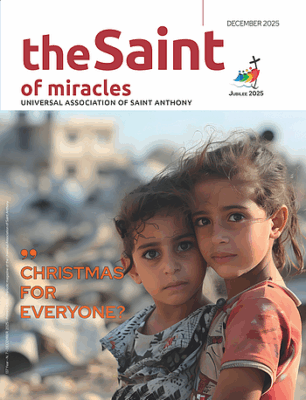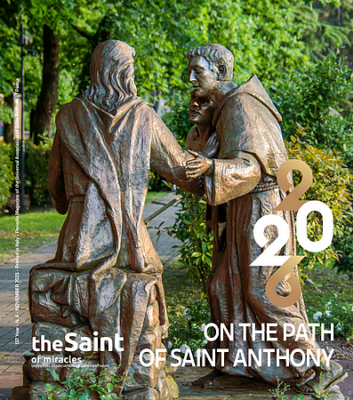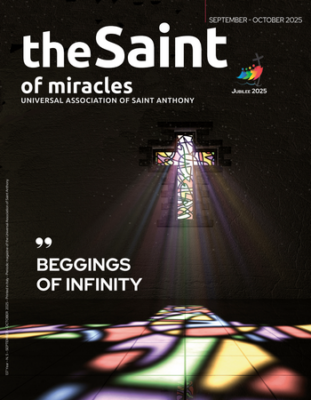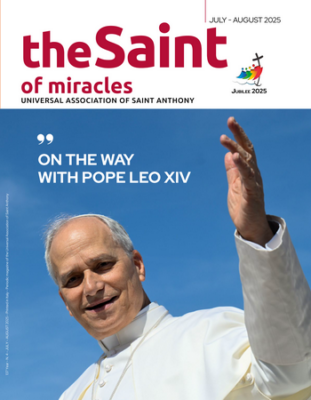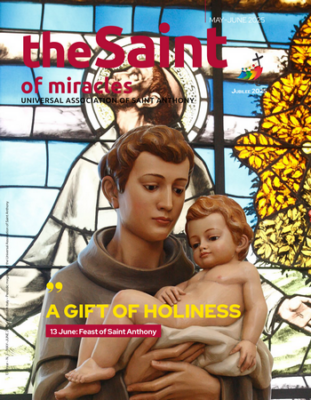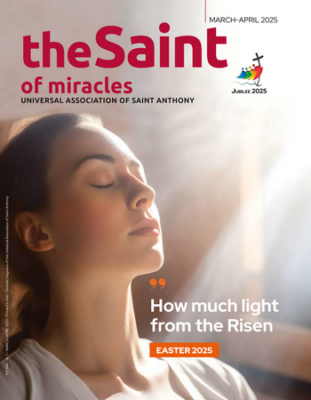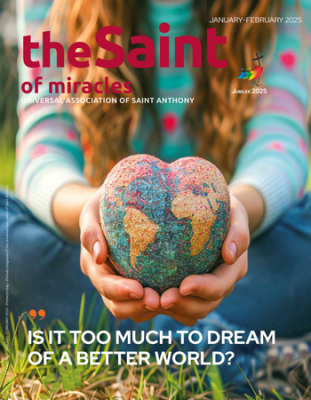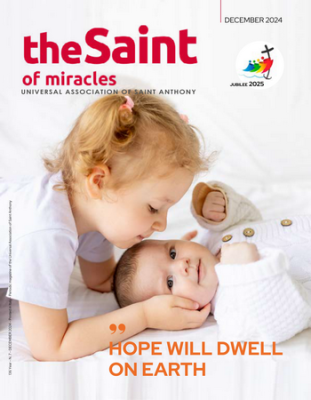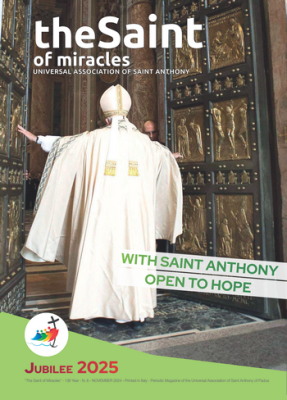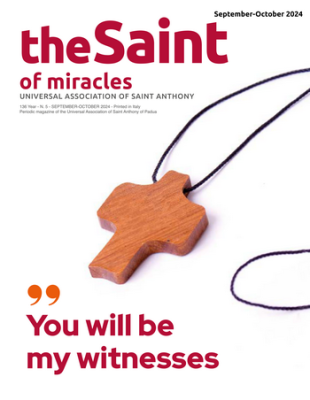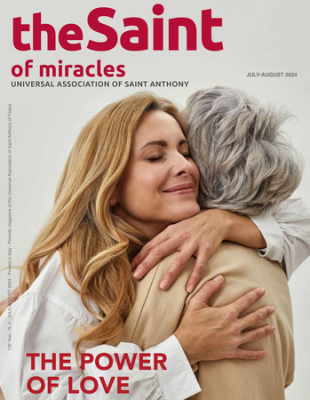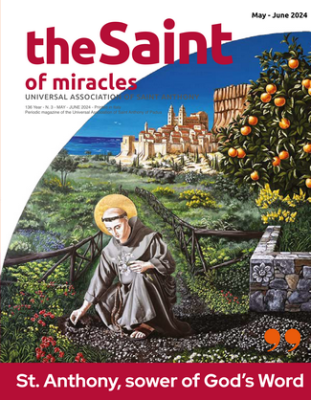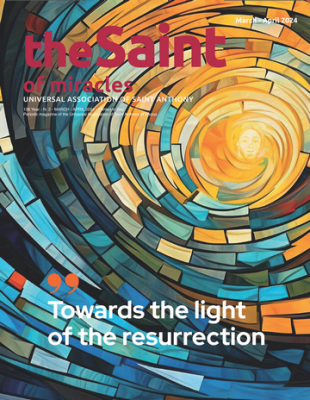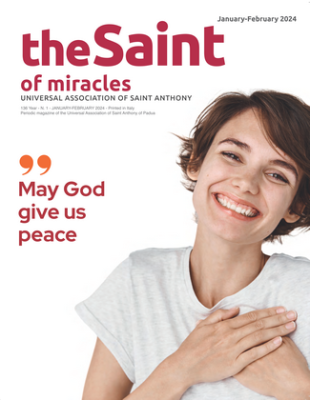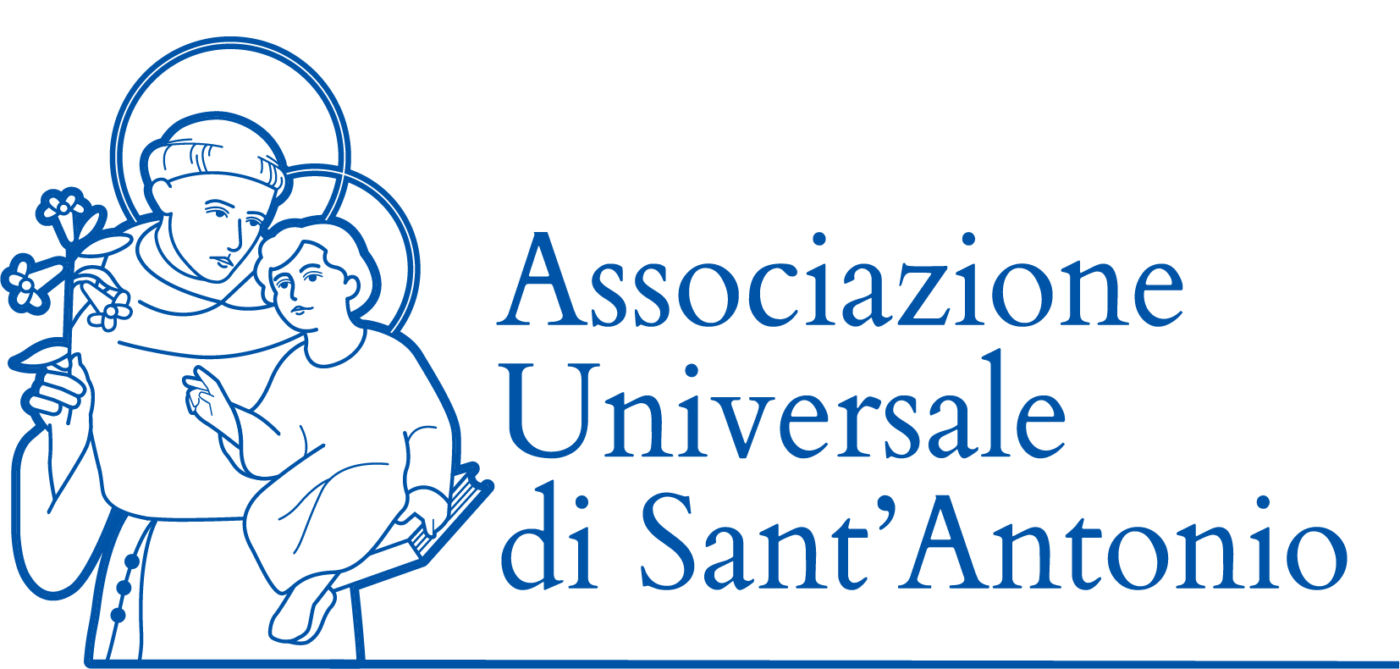Year 131 - December 2019Find out more
Verbum caro (hic) factum est
Fr. Livio Tonello, director
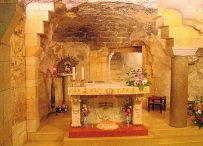
Saying that it is already Christmas is an obvious statement, linked to the time that seems to flow fast. That’s why I start in August, as a joke, to say that “now it’s Christmas” and that you have to think about the crib. And when I wrote these lines, to comply with printing requirements, it was still hot.
It is not easy to identify with an event that will happen later. But is it easier to think about what happened 2000 years ago? “The Word became flesh” yesterday, as if it were today. In the basilica of Nazareth, where historically tradition identifies the place where Mary receives from the angel the announcement of the birth of the Savior, there is an inscription in Latin: Et verbum caro (hic) factum est.
Compared to the passage in John’s Gospel (chap. 1:14) there is the addition of hic (here). Yes, “here”, right here the son of God became flesh, he became man in the womb of Mary. That adverb is also valid for us today. We can say “here and today” Jesus was born: in every place and in every time.
Because his birth has a universal value that crosses space and time. That is why I can speak of Christmas also in the summer. Its incarnation is a unique event that gives value to the story of each person on this earth. To become flesh means to have assumed, shared and taken upon oneself the human reality in fullness and forever. Jesus continues to be present in my humanity, in my land, in my daily life.
This is the recognition that is needed today. Humanity needs to rediscover its value, a humanity divinized by the presence of God. There are signs that can be read as a desire for humanization despite the degradation we are witnessing. Let us become aware that technology is not enough. Machines do not have a soul. Computer science does not solve all problems. Above all, they do not make us feel more human.
The germs of a recomposition of the human are seen in the renewed attention to creation, to nature, to its creatures. There is a return to the land: small vegetable gardens cultivated in cities, in the midst of concrete, to re-establish a bond, to take care of and savour a lost genuineness; the company of four-legged animals, as a need for relationship, for living contact, perhaps a paradoxical remedy to loneliness and anonymity.
Small signs of a yearning to give back a humanizing trait to our lives. Unfortunately, that is not all yet, because it is often people themselves who remain out of this concern for what they humanise. God who becomes flesh in the mystery of Christmas reveals to us the profound value of each person within the goodness of creation.
It is there that we must arrive, considering that even today human flesh is the same flesh that has been assumed by the Son of God. He now is every man, woman, young, poor, rich, old... who lives in this world and becomes humanized in them. To put it in the splendid image of the Prologue of the Gospel of John, “he made his dwelling among us” and he continues to make it because the humanity he has assumed is forever.
Thus Saint Anthony says: “...you will find the stammering wisdom, the weakened power, the lowered majesty, the immense fact of being a child, the rich who have become poor… this will therefore be the sign for you” (Sermon on the Nativity of the Lord). The Word continues to be flesh in us, here—today—always so that we can humanize ourselves through his divinity. May it be a holy Christmas of peace for all of you, dear subscribers, together with your families.


 Italiano
Italiano Français
Français